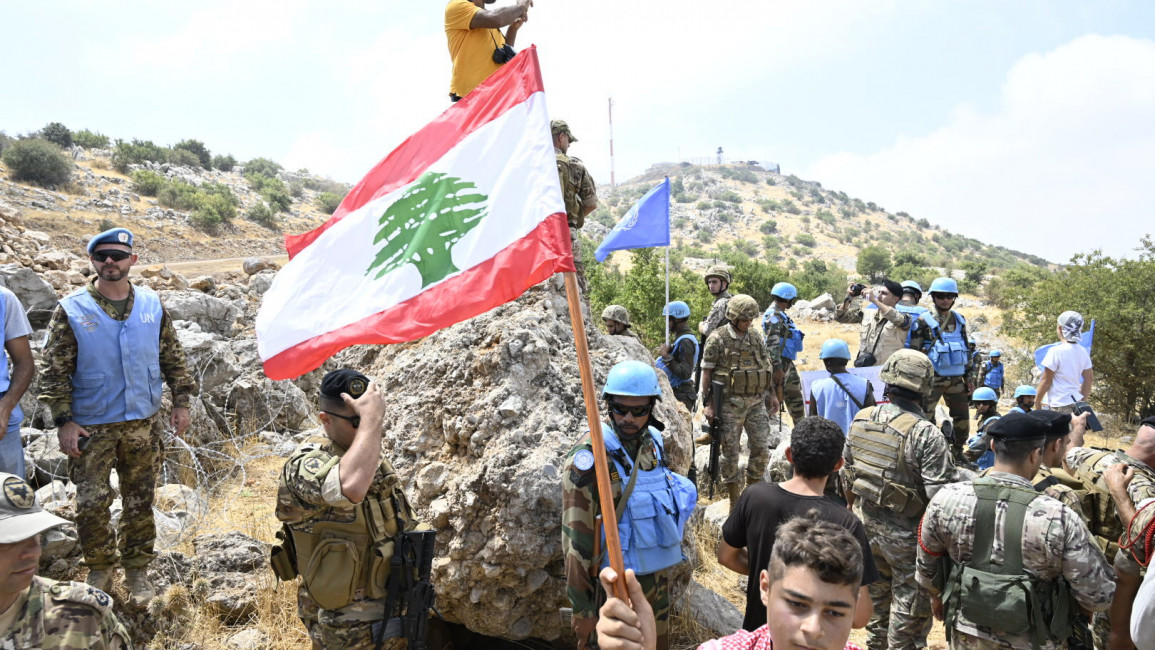UN vote on Lebanon peacekeeping force UNIFIL delayed as France, US, UAE argue
A planned United Nations vote on Wednesday to renew approval for a peacekeeping mission in Lebanon has been delayed as France, the United States and the United Arab Emirates argue over the freedom of movement of UN troops, diplomats said.
The UN Interim Force in Lebanon (UNIFIL) - established in 1978 - patrols Lebanon's southern border with Israel. The mandate for the operation is renewed annually and its current authorisation will expire on Thursday.
The Security Council stalemate comes amid an escalating war of words between Israel and Iran-backed Hezbollah in Lebanon with each vowing to return the other to the "stone age" and preparing for possible conflict even as they deny seeking one.
France has drafted a UN Security Council resolution to extend the peacekeeping mission for another year, but the United States and the United Arab Emirates argue it has weakened some language on the ability of UN troops to move freely.
"UNIFIL's freedom of movement is absolutely paramount at a time when tensions in the area are rising to dangerous levels," said a UAE diplomat, speaking on condition of anonymity.
UN Secretary-General Antonio Guterres told the Security Council in a 3 August letter seen by Reuters that UNIFIL continued to face restrictions to its freedom of movement and delays in access to locations of interest.
"The Mission's ability to conduct patrols and activities independently must be maintained," Guterres wrote.
According to a draft resolution seen by Reuters, France has added language spelling out that peacekeepers should coordinate with the Lebanese government, and deleted text included in last year's council resolution that demanded all parties allow "announced and unannounced patrols" by UN troops.
'Ink on paper'
US Ambassador to the UN Linda Thomas-Greenfield said talks were continuing and that the United States wanted a resolution "that strengthens UNIFIL and provides UNIFIL with what it needs to continue to operate effectively."
The French UN mission did not immediately respond to a request for comment.
"Lebanon's demands to limit the freedom of oversight and monitoring of UNIFIL personnel regarding what is happening in southern Lebanon are not accepted," Israel's UN Ambassador Gilad Erdan told Israel's Army Radio on Wednesday.
Lebanon's caretaker foreign affairs minister Abdallah Bou Habib has said that the new Security Council resolution should stipulate that UNIFIL coordinate with the Lebanese army.
UNIFIL's mandate was expanded in 2006, following a month-long war between Israel and Hezbollah, to allow peacekeepers to help the Lebanese army keep parts of the south free of weapons or armed personnel other than those of the Lebanese state.
That has sparked friction with Hezbollah, which effectively controls southern Lebanon despite the presence of the Lebanese army. Hezbollah is a heavily armed party that is Lebanon's most powerful political force.
Hezbollah leader Hassan Nasrallah warned on Monday that even if the Security Council adopted the same language as last year on the freedom of movement of UN troops it would "remain ink on paper."
"The people will not allow (it)," he said in a televised address on Monday. "There is no intention to use weapons, but ... people in the south will not allow a decision to be implemented despite the Lebanese government's rejection of it."
In December, an Irish peacekeeper was killed when his UNIFIL vehicle came under fire in southern Lebanon. A Lebanese military tribunal has accused members of Hezbollah of involvement in the killing. Hezbollah has officially denied involvement.
(Reuters)


![A pro-Palestinian encampment at Columbia persists, despite recent arrests. [Brooke Anderson/The New Arab]](/sites/default/files/styles/image_330x185/public/2024-04/417084c8-3251-4705-8422-058fca1d5709.jpg?h=ddb1ad0c&itok=T2cXVfXy)
